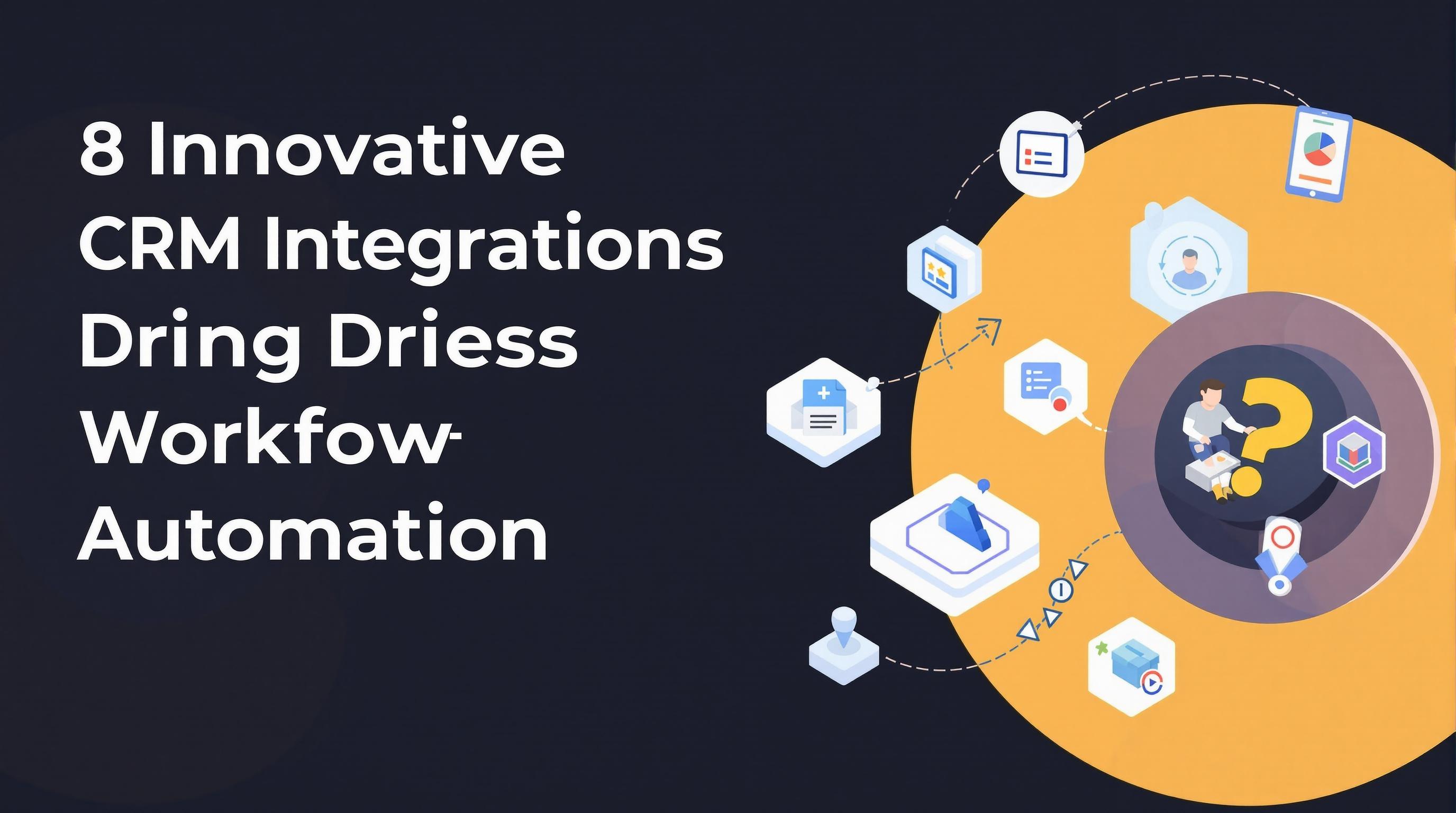Related Articles
- Exploring the Role of Emotional AI in Resolving Conflicts Within Customer Support Interactions
- Top 6 Breakthrough Pricing Engines Launched Since 2019 That Redefine Value Perception and Buyer Behavior
- How HR Software Is Quietly Shaping Workplace Culture Beyond Metrics and Performance Tracking
- The Surprising Influence of Workplace Architecture on Team Dynamics and Project Success in Business Ventures
- 7 Lesser-Known Marketing Automation Tools Released Since 2019 That Outsmart the Giants
- Top 6 CRM Platforms Released Since 2019 That Are Redefining Automation and User Experience in 2024
Uncovering How CRM Data Privacy Gaps Affect Consumer Trust and Business Reputation in Niche Markets
Uncovering How CRM Data Privacy Gaps Affect Consumer Trust and Business Reputation in Niche Markets
CRM data privacy gaps seriously undermine consumer trust and can tarnish business reputation, especially in niche markets where customer relationships are key. This article explores multiple facets of this issue through varied lenses, including case studies, statistics, and storytelling, all woven to reveal the intricate link between data security and brand integrity.
Storytime: When Trust Was Lost
Imagine a boutique vegan skincare brand in Portland, beloved by a small but fiercely loyal customer base. One day, the company’s CRM system was hacked, exposing customers’ personal preferences, addresses, and payment details. The fallout was swift: loyal fans felt betrayed, talks on social media turned sour, and sales plummeted by 35% in just two months. This real incident underlines how a single privacy gap in a niche business can spiral into a reputation crisis overnight.
A Closer Look at the Data Privacy Problem
Customer Relationship Management (CRM) systems store a goldmine of personal and behavioral data. However, many niche companies use off-the-shelf CRM tools without tailoring security features adequately to their specific needs. According to a recent report by IBM, 60% of data breaches involve compromised customer records, emphasizing that overlooked CRM vulnerabilities present a major risk vector.
The Statistics Don’t Lie
From a survey conducted by PwC in 2022, 85% of customers said they would not do business with a company again after a data breach. That’s immense, especially for niche markets, where repeat business and word-of-mouth recommendations drive growth. In sectors like artisanal goods, health and wellness, and boutique financial services, this can be fatal.
This Isn’t Just About Compliance; It’s About Culture
Regulations such as GDPR and CCPA establish baseline rules, but smart companies do more—they cultivate a culture that prioritizes data privacy. This shift from mere compliance to genuine care builds stronger consumer bonds. For example, a small health-tech startup recently implemented privacy-by-design principles from day one, gaining a 40% faster customer acquisition rate compared to competitors, according to their internal metrics.
The Trust Factor in Niche Markets
In large corporations, the impact of data breaches is devastating but sometimes diluted in vast customer pools. However, in niche markets, customers expect personalized experiences and trust relationships that feel almost intimate. When that trust breaks, the backlash is often more vocal and personally damaging to the brand.
CRM Systems: A Double-Edged Sword
On the one hand, CRMs enable personalization and improve customer insights. But the more detailed the data, the higher the stakes if security gaps exist. Many providers don’t offer granular privacy controls out of the box, leading some businesses to under-protect sensitive data, thereby becoming juicy targets for cybercriminals.
Below the Surface: Hidden Risks of Over-Shared Data
Many niche businesses, excited by the CRM’s ability to track preferences, purchase history, and even social habits, tend to over-collect data without due consideration. This bloated data pool magnifies risks; a breach could expose far more than customers anticipate, intensifying feelings of violation and eroding trust permanently.
Humorous Take: The CRM Privacy Circus
Picture this: Your CRM is like a circus tent, stuffed with valuable data animals—some tame, some wild. The ringmaster (that’s you) tries juggling privacy policies, but suddenly a cyber-clown sneaks in, tipping over data cages. Chaos ensues, and the headline reads, “Local Business’s Secrets Stolen by Cyber Clown.” Jokes apart, this metaphor highlights how easily control can be lost without proper privacy safeguards.
Case Study: Boutique Financial Advisors
One boutique financial advisory firm serving high-net-worth clients faced a data privacy lapse when a third-party CRM plugin leaked client info. The firm lost three clients in six months and suffered a PR nightmare, but their quick transparency and enhanced privacy measures helped regain stability over a year. This underscores how crisis management and openness are critical after privacy failures.
Actionable Solutions to Mend Privacy Gaps
The path forward involves more than just security tech—it demands policy overhaul, staff training, and consumer communication. Adopting encryption, implementing strict access controls, conducting regular privacy audits, and fostering open dialogue with customers about data use can mitigate the risks. For niche firms, partnering with privacy consultants tailored to their industry is often a game-changer.
Conversational Insight: Why Should You Care?
Hey, if you’re running or working with a niche brand, your CRM is like your loyal sidekick. But if it’s slipping secrets, your customers will feel awkward, and you’ll lose credibility fast. It’s less about paranoia and more about respect—respect for the people who trust you with their info every day. Fix those privacy gaps before they fix you—because trust, once broken, is hard—and expensive—to rebuild.
Emerging Trends in CRM Privacy
Privacy-enhancing technologies such as differential privacy and homomorphic encryption are gaining traction, enabling businesses to analyze customer data without exposing raw information. Niche market players leveraging these technologies can differentiate themselves by marketing their superior data ethics, appealing to increasingly privacy-conscious consumers.
Conclusion: The High Stakes of CRM Privacy in Intimate Markets
Ultimately, the delicate nature of trust in niche markets means businesses cannot afford to ignore CRM data privacy gaps. Consumer trust doesn’t just influence sales—it shapes brand legacy. Prioritizing robust privacy isn’t merely a technical necessity; it's an essential investment in long-term reputation and growth.




